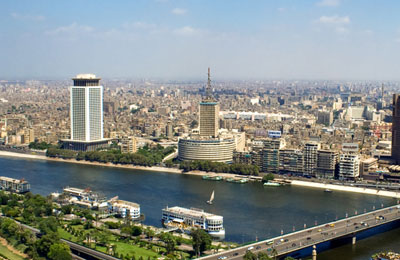
Egypt extends 5pc supplementary tax to firms
Cairo, June 9, 2014
Egypt extended a 5 percent supplementary tax to include companies as well as wealthy individuals, drawing a mixed response from businesses on Monday as it seeks ways to boost flagging state revenues under a new president.
Egypt's outgoing interim government approved the tax last month on individuals who will earn more than 1 million Egyptian pounds ($140,000) a year over the next three years.
The official gazette - which records new laws and decrees - said late on Friday the tax would also be imposed on some companies, which officials had initially said were exempt.
Officials at the Financial Supervisory Authority were not available for comment on details.
But the regulator's former chairman, Ashraf el-Sharkawi, said corporations that earn less than 10 million pounds annually would be taxed at 25 percent instead of the current 20 percent. Firms making in excess of 10 million would be taxed 30 percent instead of 25 percent.
Egypt is keen both to encourage investment and raise additional revenue after more than three years of economic and political turmoil since a popular uprising that ousted Hosni Mubarak in 2011 drove many tourists and investors away.
Ahmed Abou Hashema, chairman of mid-ranking steel firm Egyptian Steel, said the new tax needed to be offset by other more business-friendly measures.
"We must endure these next three years for the good of the country and social justice... (But) That must happen in tandem with creating new legislation to stimulate and encourage investment," he said.
A second senior businessmen was more critical.
"I am against this tax... We really have pressures and an increase in production costs, especially for raw materials that we import and we can't find had currency except in the black market," said the chief executive of a food company who declined to be named.
"It is not a good time to pass such a law... We might have to raise prices in order to make up for this increased tax."
It was unclear whether former interim president Adly Mansour has signed the law or if he had left it to his successor Abdel Fattah el-Sisi, who was inaugurated on Sunday.
In a parallel move, Egypt passed a capital gains tax on stock market profits late last month but watered it down last week after the bourse suffered its biggest daily fall in almost a year.
The country of 85 million has been struggling to curb a budget deficit that swelled to around 14 percent of GDP last year. The government is under pressure to cut subsidies that eat up around a fifth of its budget but risks triggering protests if it does so. - Reuters







